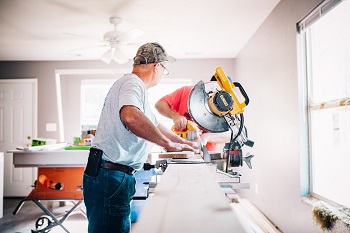Learning How to Save Money

Real Simple tells us, “Most recommendations for ways to save money focus on small amounts—learning how to save money on groceries, for example, can save you $20 here or $5 there. Those small amounts alone won’t mean the difference between being able to buy a house and renting forever or retiring at 60 versus retiring at 70.”
“Financial services company Principal recently polled more than 2,000 retirement plan participants on their retirement savings behaviors. The participants weren’t your everyday savers, though: Principal’s survey focused on groups it calls Super Savers and Pre-Super Savers. These elite retirement preppers save 90 to 100 percent of the max contribution, or 15 percent of their income (Super Savers), or 70 to 89 percent of the max contribution, or 13 to 14.99 percent of income (Pre-Super Savers).”
“So how do these Super Savers tuck away their money? The most common sacrifices, according to the survey, include driving older vehicles, owning a modest home, not traveling as much as they’d prefer, doing DIY projects instead of hiring help, going without a housecleaner, dealing with high levels of work stress, and more.”
Learning How to Save Money with DIY
Before embarking on a DIY project, you need to have a frank discussion with yourself about your renovating skills and your ability to use the tools for the job. You want to finish the renovation looking like it was done professionally. You don’t want to hire a professional to fix what you did at an additional cost. That is probably the biggest fear that keeps someone from taking on a project.
Can You DIY?
Here are examples of jobs you could do yourself. When I was building my first house, I did things that would have cost me money to hire someone. I put up the insulation, rented a bobcat to level the front yard, and had fill delivered to the garage and compacted it before the cement was poured.
Renovation Jobs and Tasks You Can Do
· Painting
– Inside painting is an excellent way to save money on a renovation. It’s simple to do, there’s no safety risk, and any mistakes you make can be painted over. There’s also no need for any specialized or expensive equipment. Painting is one job you should definitely DIY.· Minor demolition work
– If you need to strip and clear out space before the renovation work can begin, there are usually plenty of simple jobs you can do yourself. Pulling up carpet and removing tiles and wallpaper are all easy, low-risk tasks that an amateur renovator can handle without expert help. In one house I knocked out a non-load bearing wall that opened up the kitchen and dining room.· Outdoor work and landscaping
– Putting in a new garden bed? Painting the driveway? Adding a front gate? These are all jobs you can probably take on yourself. The best thing about outdoor work is that even if it takes several weekends to complete, it won’t completely disrupt your life like an unfinished indoor renovation would.· Plastering
– DIY plastering is relatively easy. There are plenty of useful how-to guides, and don’t forget YouTube explaining all the ins and outs of completing the job yourself, and there’s little risk of causing any significant damage to your home.What should you leave for the Professionals?
· Electrical
– No doubt about it. Most of us are not qualified. Electrical work is dangerous stuff, and the risk of electrocution or fire is high.· Plumbing
– In most states, it’s mandatory to have a compliance certificate before completing any plumbing work.· Gas fitting
– If you want to be cooking with gas in your new kitchen or using a gas hot water heater for your new shower, you’ll need to get a licensed gasfitter to take care of it for you.· Structural work
– Any structural work on a renovation project needs to be done by a qualified licensed builder. If that wall I tore out was load-bearing, I would have been a fool to attempt it.· Major demolition work
– Any heavy-duty demolition work or any demolition jobs on a property where asbestos could be an issue should be left to the professionals. Not only is there a genuine safety risk if you don’t know what you’re doing, but there’s also the chance of causing severe structural damage to your home.· Sanding Floors
– I can just picture big gouges in my hardwood floor. No thanks! Leave the floor sanding to someone qualified and experienced.· Roofing
– While there may be some roofing jobs you can do yourself, such as replacing a few damaged tiles, this type of work is generally best left to the professionals. It is a long way down in places on my roof.What about Tiling, Carpentry, and Bricklaying?
Certainly! However, you need to make sure you can do them. I like learning how to save money, and I want to be proud of the renovation. DIY is a terrific way to do both, but be smart. Bring in the professionals for the jobs that require specialized skills or are dangerous.Ask for FREE information about How to Sell Your House Fast.
Terra Firma Property Solutions, LLC is a professional, full-service real estate solutions firm.
We buy and sell properties throughout the greater Kansas City area. We specialize in buying distressed homes, then renovating and reselling them to home buyers and landlords. Terra Firma Property Solutions: excited to be part of the economic rejuvenation of Kansas City and its surrounding areas.
Call us today at (816) 866.0566
